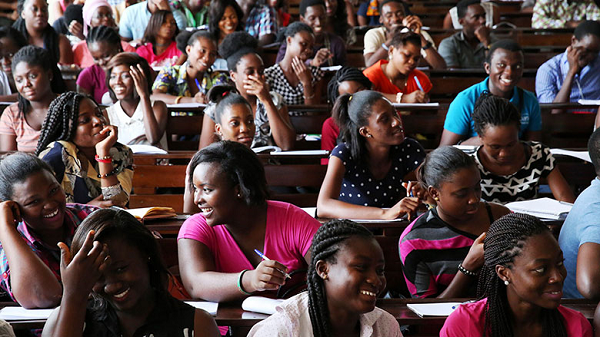
Speed up plans for joint university admissions
Admission to tertiary institutions throughout the world has, for a long time, remained an optional final stage of formal learning that occurs after completion of secondary education and every secondary school leaver aspires to that stage.
Indeed, the United Nations International Covenant on Economic, Social and Cultural Rights of 1966 declares, in Article 13, that: "Higher education shall be made equally accessible to all, on the basis of capacity, by every appropriate means, and in particular by the progressive introduction of free education."
Article II of the First Protocol to the European Convention on Human Rights, adopted in 1950, obliges all signatory European countries to guarantee the right to education.
In Ghana, the right to education is guaranteed by the Constitution and successive governments have done all in their power to ensure that citizens are educated to the highest level.
Yet, getting tertiary education in the country has been beset with many challenges, the first being how to obtain admission to a university. Ghana boasts 10 or so public universities and (now) a countless number of private universities.
To gain admission to any of these, public or private, a candidate needs to apply directly and separately to each university at great cost and wait anxiously for placement.
The result is that many who are able to buy forms for more than one university and generally qualify for admission are admitted to more than one university, sometimes blocking the chances of others who would otherwise have gained admission.
Fortunately, last week, the government announced its intention to harmonise the sale of forms to applicants seeking admission to public universities throughout the country.
Under a Joint Admissions and Matriculation Board (JAMB), prospective students would buy single admission forms to indicate their choices of universities and courses, in the same way students select senior high schools on sitting for the Basic Education Certificate Examination at the junior high school, the Minister of State in charge of Tertiary Education, Professor Kwesi Yankah, told the Daily Graphic in an interview.
This is not a new way of applying to public universities, although in Ghana the practice has been for persons seeking tertiary education to apply to the individual university. In many parts of Africa and globally, there are synchronised admission systems for entry into public universities.
It is for this reason that we at the Daily Graphic believe that a JAMB is long overdue and will save students from buying forms from the various universities at great cost. It will also help in regulating the cost of admission forms which keeps going up under the current practice where individual universities sell their forms separately.
Currently, there is a general perception that many of the universities take undue advantage of the high number of applicants to sell admission forms far above the number of vacancies available, a situation that has given cause for the Education Ministry to caution the universities to stop exploiting applicants.
The government’s intention must be nurtured into fruition as soon as practicable. We suggest the setting up of a committee of experts to work out the modalities for a roll out of the JAMB idea.
With the start of the free SHS, a roll out of a harmonised public university admissions system will be a feather in the cap of the government as it desires to ensure unhindered access to education for all.

 Click the link to read your copy.
Click the link to read your copy.